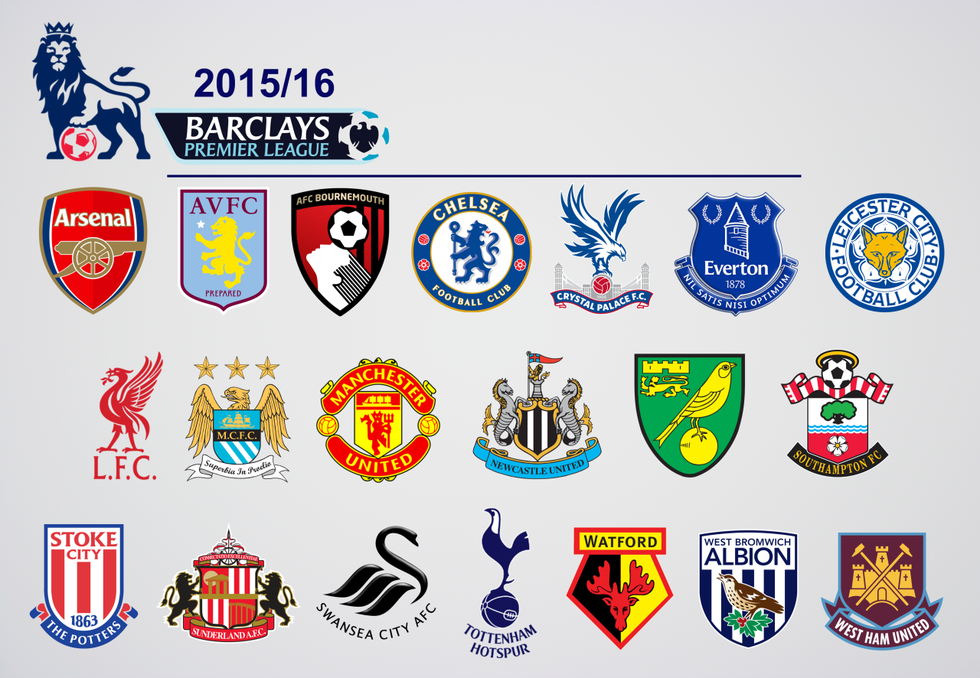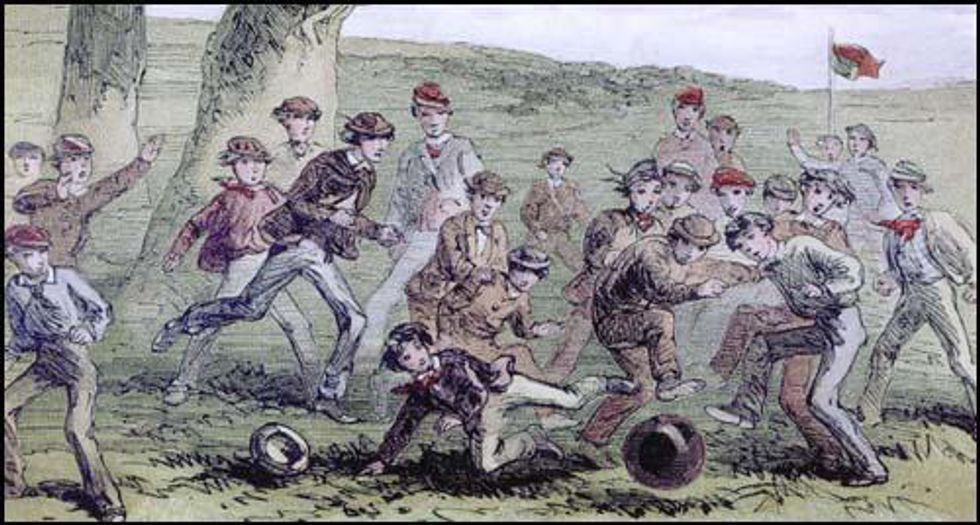Ah, soccer. That thing that Americans seem to suddenly like every four years during the World Cup.
The average American kinda sorta knows about that Messi guy. He plays for Barcelona, right?
All girls know all about that one super sexy soccer player.
There's another hot one, too! This guy: Cristiano Ronaldo.
Isn’t there some guy who bites people? Yep. This guy. His name is Luis Suárez and he plays with Messi at Barcelona.
The average American sports fan has heard of the English Premier League, the largest, most successful, most profitable sports league in the world. I am here to explain the highly complex English Premier League to Americans.
The main differences between the Premiership (and in fact all European soccer leagues) and professional sports in the United States is the existence of the NCAA , the ensuing Draft and the lack of a salary cap.
Youth Academies
In Europe and around the world, each football club, which is privately owned and operated, has it’s own youth academy, which is attached almost exclusively to the club. At a young age, players sign to play with a club, then move up through the ranks, grow as players and are taught skills that are required to play at the highest level and the club’s standard. There are many complicated and in depth rules that are the responsibility of the club to follow. These pertain to players regarding age, proximity of the club, traveling and schooling. (More details are explained here http://news.bbc.co.uk/sport2/hi/football/get_invol...)
Some youth programs are particularly successful, like Southampton in England, Real Madrid’s La Fábrica and Barcelona’s legendary academy, La Masia. At these youth academies, players are taught how to play football in the style and manner of the club, which is how clubs are able to create distinct “footballing identities,” which are their own unique style of football. Scouts from clubs flock to youth academies to watch the newest, young, bright talents. Through the youth academies, professional clubs obtain players by “growing” them through their own youth academy or by “buying” players.
NCAA
The United States is the only country with a high developed college athletic program- the National Collegiate Athletic Association aka the NCAA, so most European football players in the youth academies do not attend college. Due to the lack of the NCAA in other countries, there is no draft for the clubs to get new players. Also, due to the lack of the NCAA draft and the fact that there is no salary cap, the transfer of players is much more free flowing (though, there are, of course, many rules, regulations and legal proceedings that are associated with transfer prospects.)
The Draft and Salary Caps/ Transfers
The Draft
In the United States, the concept of “tanking” or “flopping” is common among teams who are having terrible seasons. If a team finishes last in the league, that said team gets the first pick (or one of the top picks) in next year’s draft. In the EPL and other leagues, if a team finishes at the bottom of the table, or last, that team (along with the second and third to last) is relegated to the division below the Premier League. Each league has another league below them where the bottom three teams are relegated at the end of the season. The three teams from the league below are promoted up a league. Clubs loose millions of dollars in TV rights and publicity if they are relegated from the Premier League. Essentially, if a club has a terrible season, the punishment is embarrassing and of high consequence. The prospect of relegation eliminates the concept of “tanking” from European football. (See this link for a more detailed description of relegation
Salary Cap and Transfers
In professional football, there is no salary cap to speak of. A salary cap is the limit on the amount of money that a team can spend on salaries for players. This means that leagues with salary caps levels playing field in terms of funds available. All teams have similar funds that can allocated for players. In the EPL, with the lack of salary caps, money speaks in huge volumes. The original of the term “buying players” come from huge teams with the financial ability to essentially choose whichever players they want because they can offer more money than other clubs. Across Europe, powerhouse clubs like Barcelona, Real Madrid, Bayern Munich, Juventus, A.C. Milan, Manchester United, Chelsea, Manchester City and Arsenal can compete with one another to offer tens of millions of dollars to transfer targets. The amount of money that is now involved in football is absurd and astronomically high. For example, in 2013, Gareth Bale moved from Tottenham Hotspur in London to Real Madrid for a record transfer fee of €118 million, which is $131,682,100. This does not include the Welshman’s $21,754,500 salary from Real Madrid, his $29,006,000 Adidas contract or any of his other lucrative endorsements. The craziest part is that lightening fast winger isn’t even the richest player in the world in terms of net worth.
There are twenty teams in the Premier League. During the season that lasts from August to May, each club plays each other twice- once at home, once away. Teams get three points for a win, one point for a draw, and none for a loss. At the end of the season, whichever team has the most points wins the League. The bottom three teams are relegated to the Football League Championship (the tier below the Premier League). The top four teams qualify to play in the UEFA Champions League, a highly prestigious tournament of the top clubs across Europe, during the following season. With the incentive to win to qualify for the Champions League and the threat of relegation, the Premier League is full of excitement throughout the season












 Photo by
Photo by  Photo by
Photo by  Photo by
Photo by 



















